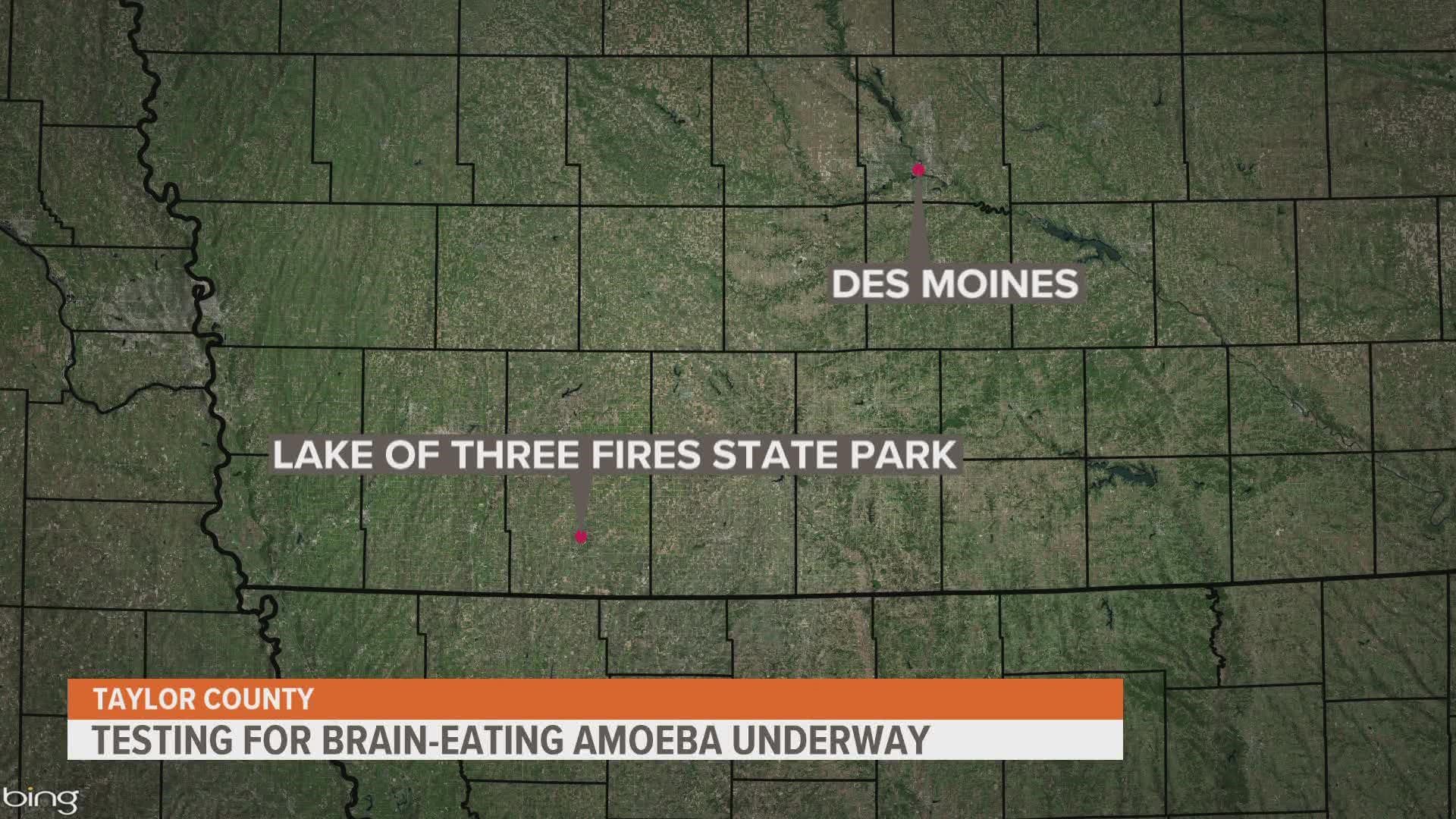BEDFORD, Iowa — The Iowa Department of Health and Human Services and the Department of Natural Resources, in conjunction with the CDC, confirmed the presence of Naegleria fowleri in a Taylor County lake on Wednesday, according to a press release.
Naegleria fowleri, colloquially known as brain-eating amoeba, can cause a life-threatening infection of the brain called primary amebic meningoencephalitis (PAM). The only way to get infected is when contaminated water enters the nose.
The news comes after a Missouri resident contracted PAM after swimming in Lake of Three Fires earlier this month. The swimmer later died of the infection.
PAM is extremely rare, with only 154 known cases in the United States since the 1960s.
Iowa DNR will reopen the beach at Lake of Three Fires on Thursday, with signage informing swimmers of the presence of Naegleria fowleri and the risk of PAM.
Further testing of additional recreational waters is not planned at this time. Iowa HHS and DNR recommend Iowans assume the parasite is present and take necessary precautions.
When near warm bodies of water, swimmers should avoid diving or jumping into the water, submerging the head under water or engaging in other water-related activities that may result in water going up the nose.
The CDC recommends contacting a doctor if you have any of the following symptoms after swimming in a warm body of water:
- Severe headache
- Fever
- Nausea
- Vomiting
- Stiff neck
- Seizures
- Altered mental status
- Hallucinations

